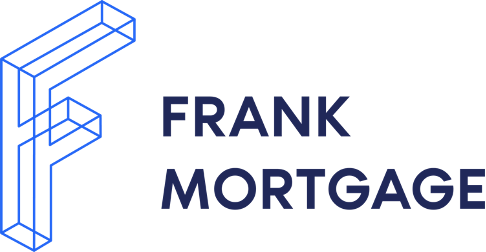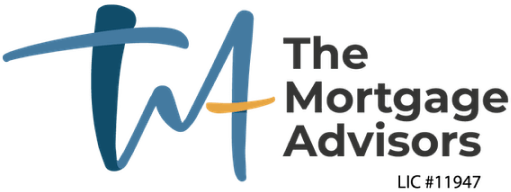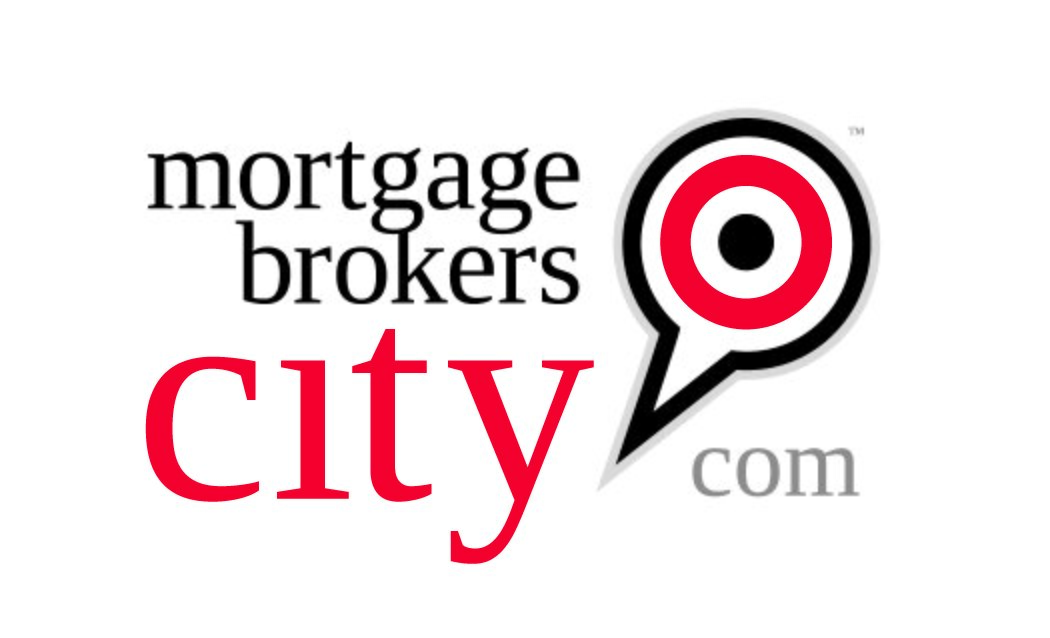Find the Best 6-month Fixed Closed Mortgage Rates in Canada
Compare the most current 6-month fixed closed rates from major banks, credit unions and mortgage brokers.
Rates are based on a home value of $500,000
Rates are based on a home value of $500,000
Today's Best Mortgage Rates in Canada
Evaluate Canada’s best mortgage rates in one place. You can compare the most current mortgage rates and monthly payments from 175+ banks and lenders across Canada.
Rates are based on an average mortgage of $500,000 and subject to change based on filter criteria.
| Lender
|
Insured
|
Insurable
|
Uninsured
|
|---|---|---|---|
|
Mortio Financial Corp
|
3.99%
$2,627.39 / month
|
4.24%
$2,695.56 / month
|
4.14%
$2,668.19 / month
|
|
Frank Mortgage
|
4.09%
$2,654.55 / month
|
4.19%
$2,681.85 / month
|
4.09%
$2,654.55 / month
|
|
Northwood Mortgage Ltd.
|
4.14%
$2,668.19 / month
|
4.24%
$2,695.56 / month
|
4.24%
$2,695.56 / month
|
|
Mortgage Outlet - Russel Inspektor
|
4.29%
$2,709.29 / month
|
4.29%
$2,709.29 / month
|
4.29%
$2,709.29 / month
|
|
Innovation Federal Credit Union
|
4.39%
$2,736.87 / month
|
4.39%
$2,736.87 / month
|
4.39%
$2,736.87 / month
|
|
True North Mortgage
|
2.99%
$2,363.66 / month
|
2.99%
$2,363.66 / month
|
2.99%
$2,363.66 / month
|
|
The Mortgage Advisors
|
3.87%
$2,594.98 / month
|
3.87%
$2,594.98 / month
|
3.87%
$2,594.98 / month
|
|
Nesto
|
3.91%
$2,605.76 / month
|
3.91%
$2,605.76 / month
|
3.91%
$2,605.76 / month
|
|
Hypotheca
|
3.94%
$2,613.86 / month
|
3.94%
$2,613.86 / month
|
3.94%
$2,613.86 / month
|
|
MortgagestoGo
|
3.94%
$2,613.86 / month
|
3.94%
$2,613.86 / month
|
3.94%
$2,613.86 / month
|
|
One Link Mortgage & Financial
|
3.95%
$2,616.57 / month
|
3.95%
$2,616.57 / month
|
3.95%
$2,616.57 / month
|
|
Northern Birch Credit Union
|
3.99%
$2,627.39 / month
|
3.99%
$2,627.39 / month
|
3.99%
$2,627.39 / month
|
|
The Police Credit Union
|
3.99%
$2,627.39 / month
|
3.99%
$2,627.39 / month
|
3.99%
$2,627.39 / month
|
|
Monster Mortgage
|
3.99%
$2,627.39 / month
|
3.99%
$2,627.39 / month
|
3.99%
$2,627.39 / month
|
|
Mainstreet Credit Union
|
3.99%
$2,627.39 / month
|
3.99%
$2,627.39 / month
|
3.99%
$2,627.39 / month
|
|
Sudbury Credit Union
|
3.99%
$2,627.39 / month
|
3.99%
$2,627.39 / month
|
3.99%
$2,627.39 / month
|
|
City Wide Financial Corp
|
3.99%
$2,627.39 / month
|
3.99%
$2,627.39 / month
|
3.99%
$2,627.39 / month
|
|
East Coast Mortgage Brokers
|
4%
$2,630.10 / month
|
4%
$2,630.10 / month
|
4%
$2,630.10 / month
|
|
Mortgage Brokers City Inc
|
4.04%
$2,640.95 / month
|
4.04%
$2,640.95 / month
|
4.04%
$2,640.95 / month
|
|
Prospera Credit Union
|
4.04%
$2,640.95 / month
|
4.04%
$2,640.95 / month
|
4.04%
$2,640.95 / month
|
Jump straight to..
- What is a 6-month fixed closed mortgage rate?
- Open vs. Closed mortgages
- Why are 6-month fixed closed rates popular now?
- What causes changes in 6-month fixed closed rates?
- Pros and cons of 6-month fixed closed rate mortgages
- 6-month fixed closed rate predictions
- 6-month fixed closed mortgage tips
- Frequently asked questions about 6-month fixed closed rate mortgages
What is a 6-month fixed closed mortgage rate?
A 6-month fixed closed mortgage rate, while being the least flexible rate, can offer peace of mind to the borrower. It allows you to lock in a mortgage rate so that it remains unchanged during the 6-month term and offers a fixed payment schedule that does not fluctuate.
Open vs. Closed mortgages
Open mortgages are flexible and often work for shorter-term loans. Generally, rates are higher in open mortgages because you are paying for the flexibility of payment and refinancing without penalties for early full payment.
Closed mortgages offer less flexibility than open mortgages. As a result, the interest rates are lower than closed rates but there is no possibility for refinancing, early payment or full payment without being charged extra fees. Closed mortgages also provide peace of mind with stable, fixed payment schedules that allow borrowers to budget accordingly based on their financial situations.
Why are 6-month fixed closed rates popular now?
The Bank of Canada has been raising interest rates since March 2022 to curb a once-in-a-generation inflation spike. As rates have gone up mortgage borrowers have been wary about taking long term loans given the high interest rate and mortgage payment schedule.
A 6-month fixed closed rate appeals to borrowers because it allows flexibility to see where rates are going, can be refinanced at any time should rates go down, and can be paid at any time without penalty. For those waiting on the sidelines, it is a good option to ride out market volatility.
| Date | Bank of Canada overnight rate | 6-month Treasury bills yield |
|---|---|---|
| 2/2/2022 | 0.25% | 0.58% |
| 3/9/2022 | 0.5% | 0.83% |
| 4/20/2022 | 1.00% | 1.63% |
| 6/8/2022 | 1.50% | 2.33% |
| 7/20/2022 | 2.50% | 3.05% |
| 9/14/2022 | 3.25% | 3.63% |
| 11/2/2022 | 3.75% | 4.03% |
| 12/14/2022 | 4.25% | 4.23% |
What causes changes in 6-month fixed closed rates?
As the Bank of Canada changes its overnight lending rates to banks, banks and other mortgage lenders adjust their rates accordingly. Recently, interest rates have been on the rise and so 6-month fixed closed rates have also risen since last spring.
The sensitivity to the Bank of Canada’s decisions goes both ways as rates can come down if and when inflation is eased, and interest rates start heading lower. Bank of Canada's overnight lending rate can influence the yield on Treasury bill, in turn affecting mortgage rates. While Treasury bill yields can provide insight into the direction of interest rates, it is not the only fact that impacts mortgage rates. In Canada, the yield on government bonds, particularly long-term bonds, is often used as a benchmark for setting mortgage rates. When the yield on government bonds rises, mortgage rates may also rise, and when the yield on government bonds falls, mortgage rates may also fall.
Treasury bills are short-term debt securities issued by the Government of Canada, and their yields can influence the interest rates for mortgages, which are longer-term loans.
When Treasury bill yields rise, it generally means that investors are demanding a higher return for lending money to the government, and this can lead to an increase in interest rates for other types of loans, including mortgages. On the other hand, when yields fall, it generally leads to a decrease in interest rates for mortgages.
Pros and cons of 6-month fixed closed rate mortgages
Advantages of a 6-month closed mortgage:
- A 6-month fixed closed mortgage offers the borrower peace of mind with a fixed payment schedule and payments.
- Easier to budget.
Cons of a 6-month closed mortgage:
- If interest rates fall, borrowers will have to refinance to get the lower rate (which may involve extra fees for breaking the term of the loan).
- It could cost more if you lock your 6-month fixed closed rate mortgage and don’t refinance at a lower rate.
6-month fixed closed rate predictions
It’s difficult to predict how the Bank of Canada will stand on interest rates in the near future but a lot depends on what the state of inflation, and overall economic picture.
Most economists see perhaps one more rate hike as inflation has peaked and started to abate on a global scale. Should this occur, rates will eventually come down and 6-month fixed closed mortgage rates would come down with it. The good news for borrowers is that 6 months is a short-term loan and should rates fall they would be able to take advantage of better refinancing options sooner rather than later.
6-month fixed closed mortgage tips
For borrowers looking for shorter-term 6-month fixed mortgages some tips are:
- Watch the markets before locking in. There may be signs that rates are going up or down and you should consider economic variables before making a commitment.
- Go to comparison sites like Rates.ca for current 6-month fixed closed mortgage rates.
- Look at your financing needs and ask yourself some questions like, when will I need to refinance? Do I want the option to prepay early? Is locking in a rate the best option for me?
- Consider other options such 6-month open fixed mortgage rates for greater flexibility if that’s what you are after (you will pay a bit more for that flexibility).
- Talk to your lender if you have one to renegotiate what you currently have. If 6-month fixed closed mortgage rates are for you or not can be discussed.
Frequently asked questions about 6-month fixed closed rate mortgages
Find answers to all your 6-month fixed closed mortgage rate related questions here.
How can I find the best 6-month fixed closed mortgage rate in Canada?
Finding the best 6-month fixed closed mortgage rates in Canada starts with comparison shopping. Rates.ca can provide current 6-month fixed closed mortgage rates by the top lenders. You’ll sleep better knowing you are getting the best possible rates in the most efficient way possible.
What happens at the end of a 6-month fixed closed mortgage?
6-month fixed closed mortgage rates are much like longer-term fixed mortgages. You can renegotiate at the end of the term, you can take out a longer mortgage if necessary, or you can pay it out in full without penalty.
Can you refinance a 6-month fixed closed mortgage?
6-month fixed closed mortgage rates are short term loans that provide stable, locked-in interest rates on a payment schedule. Refinancing can occur at the end of the term. Breaking the term to refinance will result in penalties but could be worthwhile only if interest rates are low enough to offset the penalty.
Are 6-month mortgage rates higher than other rates?
Generally speaking, 6-month fixed closed mortgage rates are not higher than other rates. In fact, the open version of the same term is usually higher due to its flexibility and open payment plan.
What is a mortgage rate lock?
A mortgage rate lock allows borrowers to fix or lock-in a mortgage rate from the time an offer is made until closing occurs. Usually, the lender will put a time limit on the lock, but it allows borrowers to pursue their purchase and budget their payments according to the locked-in rate. Sometimes rates can come down during that period which may mean you will pay more than someone taking out a mortgage at the same time. Talk to your lender to see if this option is right for you.



























